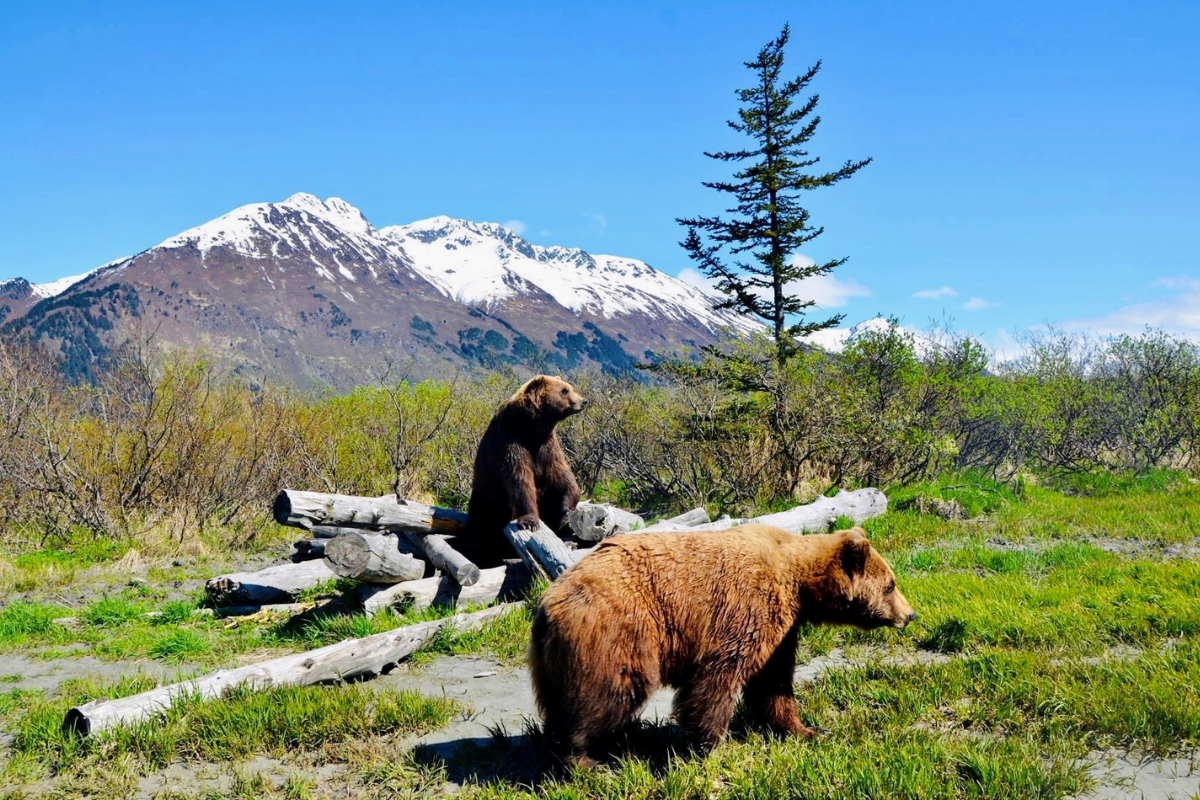When the Trump administration held the Arctic National Wildlife Refuge’s first oil sale Jan. 6, 2021, following a 2017 decision by Congress to open the area to leasing, we at Friends of Animals were traumatized.
Needless to say, we are breathing a sigh of relief and cheering the Biden administration’s confirmation on Wednesday that it will cancel seven controversial oil and gas leases in the Alaskan wildlife refuge.
“This is a win for bears, caribou, moose, birds and many other species who the former administration put in harm’s way, and we couldn’t be happier,” said Priscilla Feral, president of Friends of Animals. “Our efforts to preserve its wildness spans two decades.”
She explained that in the spring of 2001, FoA delivered a report to members of Congress detailing the ways in which oil drilling would cause irreversible damage to the refuge’s ecosystem and voicing our opposition to any legislation that would permit it. Throughout his campaign, George W. Bush prioritized U.S. energy self-sufficiency through oil exploration and drilling in the Arctic National Wildlife Refuge.
That summer, we took an aerial tour of the refuge, described as “America’s Serengeti,” flying over its snow-capped mountains, arctic tundra, foothills, wetlands, boreal forest and fragile coastal plains. We wanted to see for ourselves the home of 250 species of animals including polar bears, grizzly bears, black bears, muskox, wolves, moose, more than 120,000 caribou and 200 species of migratory birds and resident birds.
“On day one of this administration, President Biden directed us to look at the oil and gas leases sold in the refuge by the previous administration,” Interior Secretary Deb Haaland said on a call with reporters from The Hill. “What we have found in our analysis is that the lease sale itself was seriously flawed and based on a number of fundamental legal deficiencies.”
The administration on Wednesday additionally proposed a rule to protect about 13 million acres in another part of Alaska to the west of ANWR, known as the National Petroleum Reserve—Alaska (NPR-A). It said in a press release that the proposed rule would provide “maximum protection” for “Special Areas” there, including places known as habitat for grizzly and polar bear, caribou and migratory birds.
“The proposal would prohibit any new leasing in 10.6 million acres, which is more than 40 percent of the reserve,” said Haaland.
The Western Arctic where the National Petroleum Reserve is located has been under threat from oil drilling since 1923. Since 1999, 7 million acres have been bid on by oil companies in 15 lease sales and several leases have been developed by ConocoPhillips, 88 Energy and others.
In 2013, the Obama administration formally recognized that more than half of the Western Arctic, approximately 13 million acres, is critical habitat for the wildlife that live there including endangered birds and the Teshekpuk Lake caribou herd. At the same time, it also opened up roughly 11 million acres for future oil and gas drilling.
But in 2020, the Trump administration changed course for the area, rolling out a new plan that included developing more than 80% of the 23 million acres for oil, including allowing drilling in the Special Areas.

